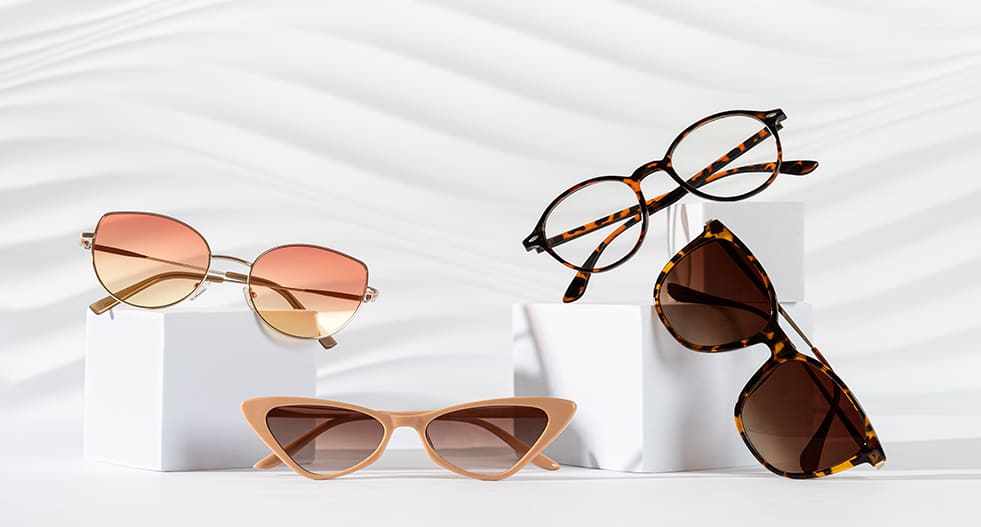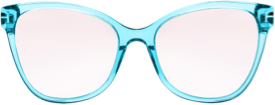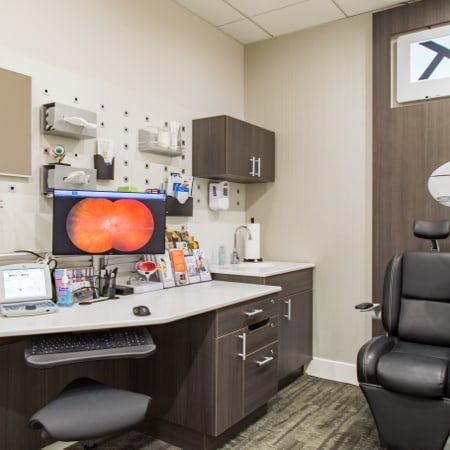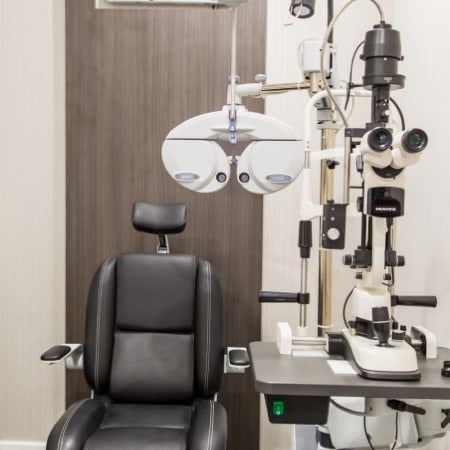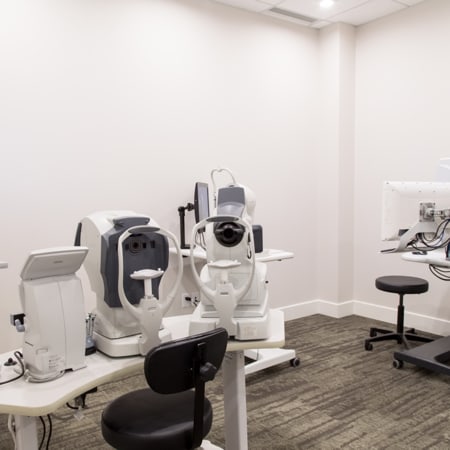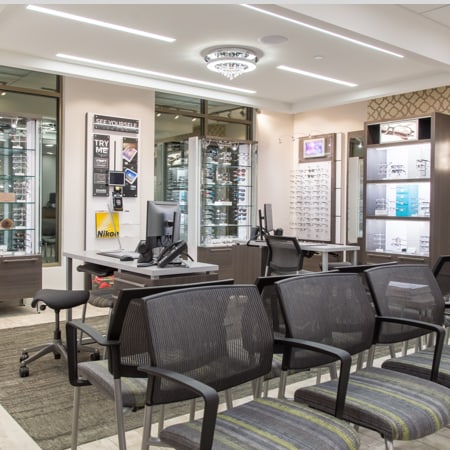If you or someone you love struggles with myopia (near-sightedness), you’re not alone—it’s estimated that nearly 30% of the world’s population is affected, and that number is growing. Myopia can impact everything from school performance to your ability to read distant road signs.
Fortunately, eyeglasses can correct myopia. However, that doesn’t mean myopia is something to be cavalier about. Early myopia management is essential to controlling its progression, especially in children. It can prevent the development of high myopia, leading to complications in adulthood and increasing the risk of eye diseases and conditions.
What is Myopia?
Myopia, or near-sightedness, is a condition where you can see close objects clearly, but distant objects appear blurry. Symptoms often include:
- Difficulty reading road signs or looking at presentations.
- Eye strain when focusing on screens or far-away objects.
- Headaches after prolonged visual tasks like driving or studying.
The most common cause of myopia is an elongated eye shape, which prevents light from focusing correctly on the retina. Genetics and environmental factors—like increased screen time or a lack of outdoor play in childhood—also significantly contribute to myopia.
Diagnosing Myopia
Diagnosing myopia is straightforward. We perform a routine eye exam to assess your vision clarity, eye health, and prescription needs. If your distant vision is blurred, you may need corrective measures like glasses or contact lenses.
Why is it Important to Correct Myopia?
Correcting myopia is about more than just seeing clearly. Untreated myopia can lead to hyperopia, which increases the risk of eye complications like glaucoma, retinal detachment, and even vision loss.
High myopia isn’t something that occurs overnight. It typically develops when near-sightedness is left uncorrected or poorly managed, which is why early intervention is key.
Available Treatments for Myopia
There’s no single “one-size-fits-all” fix for myopia. Below, we’ll explore some of the most popular treatments and examine how they work to correct or manage the condition.
Glasses Correct Myopia (& They’re the Starting Point!)
For most people, glasses are the first and most straightforward solution. With lenses designed to refocus light on the retina, glasses instantly correct blurry vision for near-sighted individuals. While they don’t slow the progression of myopia, they’re an essential tool for everyday clarity.
If you’re considering glasses, there are even specialized options like the ZEISS MyoCare Lenses, which are designed to help slow myopia development in children by reducing strain on their eyes.
Orthokeratology (Ortho-K)
Ortho-K involves wearing specialized contact lenses overnight to temporarily reshape their corneas and control myopia. When you wake up, your vision is temporarily corrected for the day. Ortho-K lenses can also help reduce dependence on glasses and contact lenses throughout the day and are an excellent option for children to control the progression of mild to moderate myopia.
Atropine Eye Drops
Atropine drops are medicated eye drops that slow myopia progression, especially in children. They relax the eye’s focusing muscles to reduce strain. Studies have shown that a low dose of atropine in eye drop form can help slow myopia progression in children to reduce the risk of severe nearsightedness.
MiSight Daily Contact Lenses
MiSight 1-day lenses are soft contact lenses that can help manage myopia in children. They use ActivControl technology to correct and slow myopia progression in children aged 8–12 at the start of their treatment.
These lenses change how light is focused on the retina, signalling the eye to reduce its growth and manage the progression of myopia. This helps slow down the elongation of the eye and prevent myopia progression.
Studies have shown that MiSight lenses slow the progression of myopia by an average of 59%.
ACUVUE Abiliti Soft Contact Lenses
ACUVUE Abiliti soft contacts use breathable materials which help your child’s eyes stay refreshed and moisturized during the day. These daily disposable lenses are made from silicone hydrogel (senofilcon A) lens material. These are soft lenses with novel ring focus technology that helps slow down myopia progression.
ACUVUE Abiliti soft contacts manage myopia by modifying how light is focused on the retina, triggering the eye to decelerate the progress of myopia.
ZEISS MyoCare Lenses
ZEISS MyoCare eyeglass lenses use a small central zone of clarity, along with myopic defocus on the near periphery, to modify how light focuses on the retina and manages the progression of myopia. This technique helps to reshape the eye and reduce the rate of myopia progression.
ZEISS MyoCare lenses are made from high-quality materials, providing clear, crisp vision and excellent comfort. Depending on the patient’s age, they are available in two distinct designs: single-vision and progressive.
Choosing the Right Lens for Your Lifestyle

When it comes to selecting the best option for correcting myopia, it all depends on your specific needs and lifestyle. Ask yourself questions like:
- How active are you? Ortho-K lenses might be more convenient than glasses if sports dominate your life.
- How mild or severe is your myopia? Severe cases may benefit from multifaceted solutions, such as atropine drops, alongside glasses or lenses.
- What’s your age? Children can benefit greatly from specialized solutions like MiSight or ZEISS MyoCare.
If unsure, your optometrist can recommend the best treatments for your or your child’s needs.
Long-term Management of Myopia
Successfully addressing myopia isn’t just about picking the right solution today—it’s about managing it long-term with regular care and adjustments. Schedule annual eye exams to stay proactive about your eye health. Your needs will change significantly as prescriptions are adjusted or new treatments become available.
New advancements in myopia management (like ACUVUE Abiliti) emerge every year. Look for updates and ask us for additional solutions aligning with your goals.
See the Difference
Myopia may seem challenging, but with today’s treatments it’s more manageable than ever. Whether you stick with classic glasses or explore advanced options like Ortho-K or MiSight lenses, getting the right tools for your vision can make a difference.
Bluewater Optometry knows that the best myopia management strategy aligns with your lifestyle. Contact us today to discuss how we can work together to correct your or your child’s myopia.
